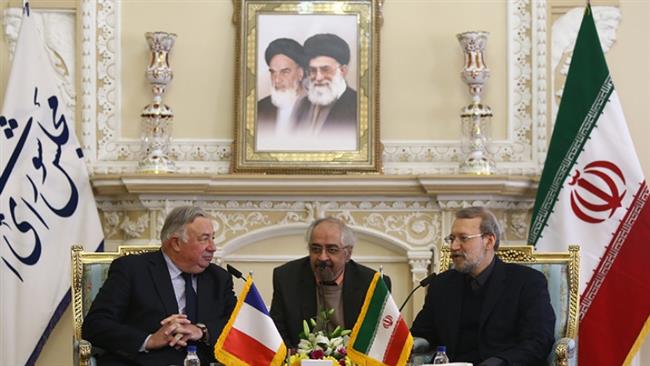
Gerard Larcher was speaking during a trip to Iran aimed at strengthening relations with France following a landmark deal to curb Tehran's nuclear programme in return for a lifting of sanctions.
The US measures "can be seen in Tehran as a sign of mistrust" and do not contribute to building confidence with Iran, he told reporters late Monday.
Iran sees Israeli lobby behind US visa waiver changes
The US bill, passed by Congress on Friday, bars citizens from 38 countries and who are also dual nationals from Iran, Iraq, Syria and Sudan from using a visa waiver programme.
It also requires people who have travelled to those four countries since 2011, or to a country Washington has listed as supporting terrorism, to apply for a standard visa, deeming them a risk.
"I think it sends the wrong signal... from a democratic country, the great American democracy," Larcher said.
Iranian hackers infiltrated computers of small dam in NY: WSJ
He said the move was at odds with the International Atomic Energy Agency's recent closure of its investigation into Iran's past efforts to develop nuclear weapons.
The end of the probe into "possible military dimensions" to Tehran's atomic programme was a condition for the July deal to go forward.
Iran's Foreign Minister Mohammad Javad Zarif said during a meeting with the French delegation that the visa restrictions were "primarily against the independence of Europe".
Iran recruits Pakistani Shias for combat in Syria
"Europeans must show their independence in the face of discriminatory measures," he said, quoted by the IRNA official news agency.
Larcher, on the first visit to Iran by a French Senate president since the 1979 Islamic revolution, on Sunday met President Hassan Rouhani who is expected to visit France in late January.
1732503274-0/Untitled-design-(43)1732503274-0-405x300.webp)
1732501636-0/Untitled-design-(42)1732501636-0-165x106.webp)

1732498967-0/Outer-Banks--(1)1732498967-0-165x106.webp)
1732086766-0/BeFunky-collage-(74)1732086766-0-165x106.webp)












COMMENTS
Comments are moderated and generally will be posted if they are on-topic and not abusive.
For more information, please see our Comments FAQ